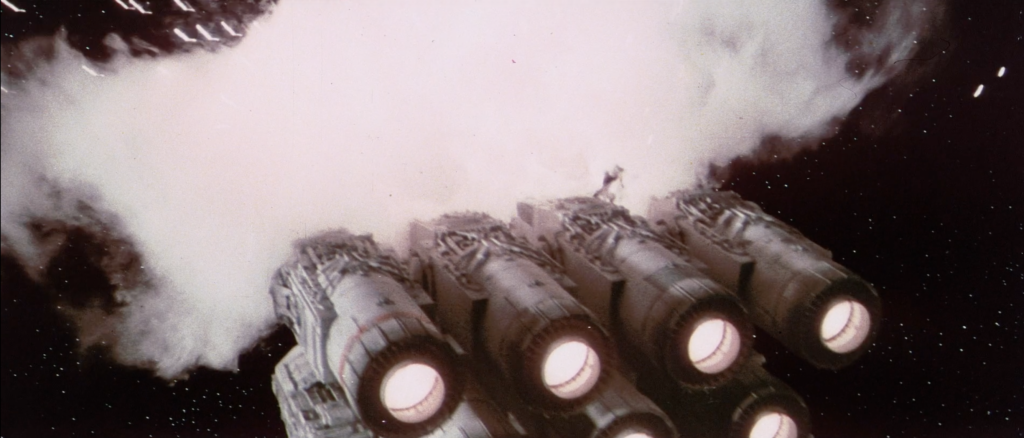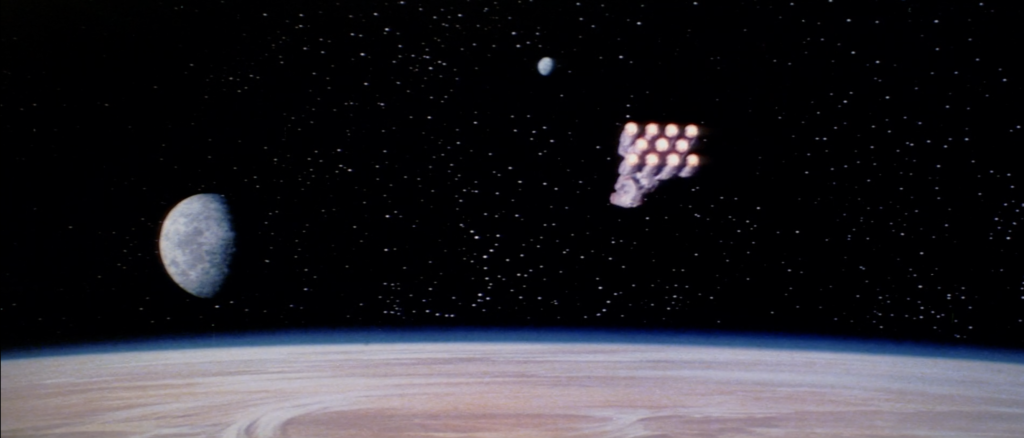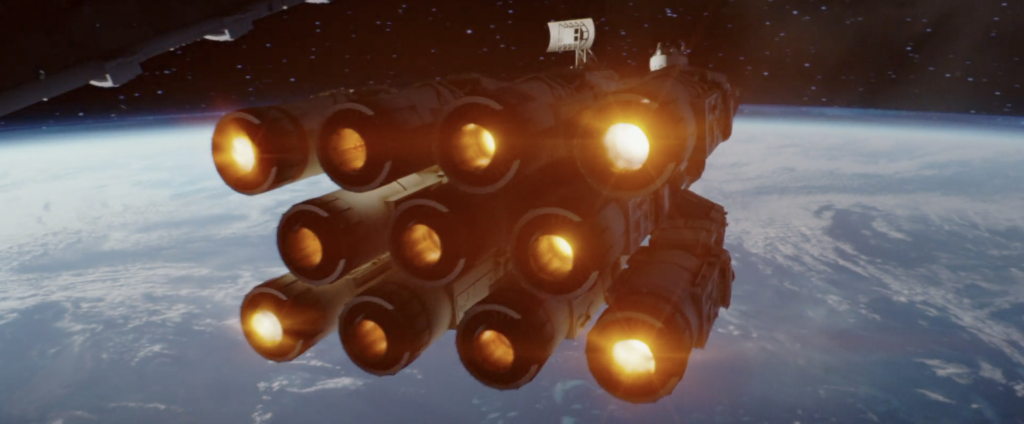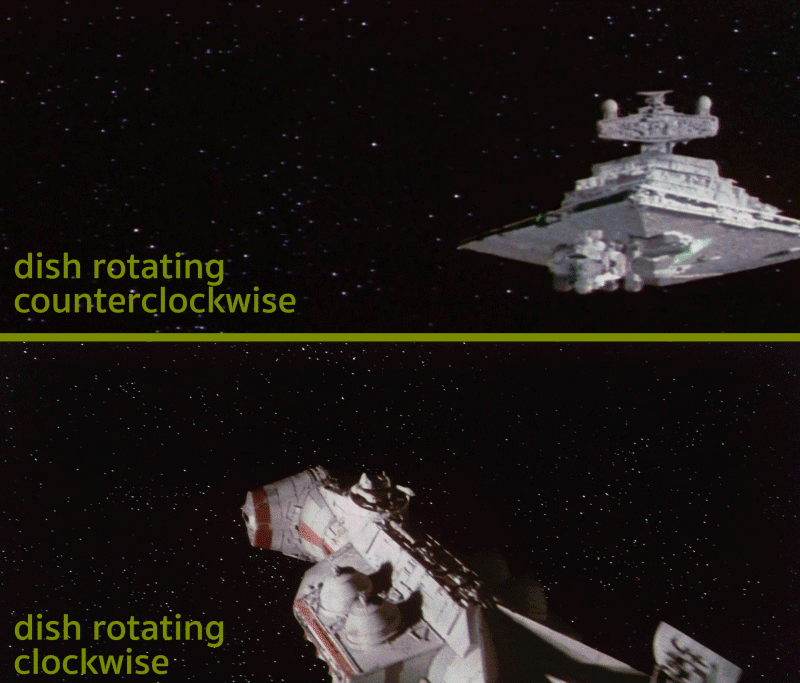Today our guest writer is Todd Vaziri, Lead Artist at ILM who chronicles how the Blockade Runner engine shot from Rogue One: A Star Wars Story went from idea to reality:
I was thrilled to get to work on this shot with my friend and frequent collaborator, ILM lighter Tom Martinek. (Leia’s Blockade Runner escapes, tying Rogue One directly to the start of Star Wars (1977)? Yes, please!) We loved bringing this moment to life. It was a thrill to be able to help create the updated look of a classic ship we haven’t seen on screen since 1977. Also, it’s fun to realize that pretty much no one agrees how to pronounce “Tantive IV.”
Our first task was to study those first fleeting glimpses of the Tantive IV from the original Star Wars. Replicating the engine look of the engines *precisely* from the first film would not work for our movie. This was a recurring theme for the design challenges we took on for Rogue One.


I created the Blockade Runner ‘engine look’ to appear the way you *think* you remember it from Star Wars, not the way it actually appeared — honoring the spirit of the original look and updating it to fit modern sensibilities and the stylistic signature of our new film.
First, I matched the hue of the engine glow from the original film. From there, I wanted to add an organic “jet engine” texture to the inside of each engine, so I rotoscoped and stabilized some footage from a Bell 209 helicopter engine, which had a lot of built-in dynamic energy.
I placed the texture inside the engine geometry of each of the eleven engines so we could get peeks at it when looking down the tunnel, and offset and rotated the helicopter engine footage for each engine (so each engine would have an unique energy signature).
Tom developed a flickery cucoloris effect to create the interactive light from the engine cast onto the inside of the chamber–I split that into 11 passes to animate them separately. Then I had to come up with a way for the engines to ignite as if from a cold start.

I knew we never saw a Blockade Runner power up in any of the movies, but I asked Pablo Hidalgo (Lucasfilm) and others to see if there was any precedent set in any of the animated series. Apparently, there was none! So, I thought it would look cool if the four corner engines fired up first for stability. Then the other seven engines followed up behind. I didn’t want the shot to become a big lens flare show, so I only had a few crisp flares peek through (taking my cues from the original trilogy X-wing engine flares).
This engine look became a quick-start setup for the other Blockade Runners you see in the film. Finally for this shot, I added a hopefully-subtle camera rumble as the engines ignited.

We had a lot of fun talking about the rotating dish atop the Tantive IV. Look carefully at it in the original Star Wars (1977)–in shot 1, it’s not visible. In shot 2, it’s rotating counter clockwise. In shot 3, it’s rotating clockwise! For Rogue One, we animated the dish counterclockwise.
Rogue One (2016), visual effects by Industrial Light & Magic. Visual effects Supervisor John Knoll. Full ILM credits.
